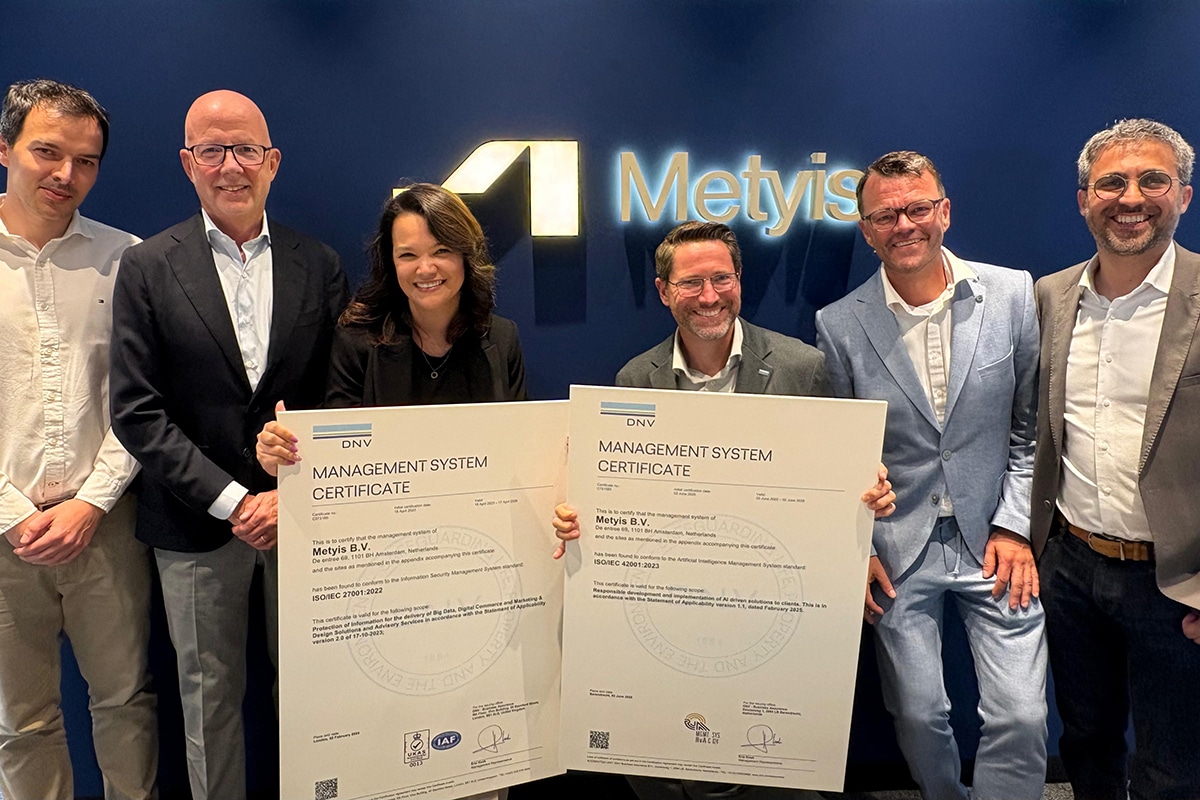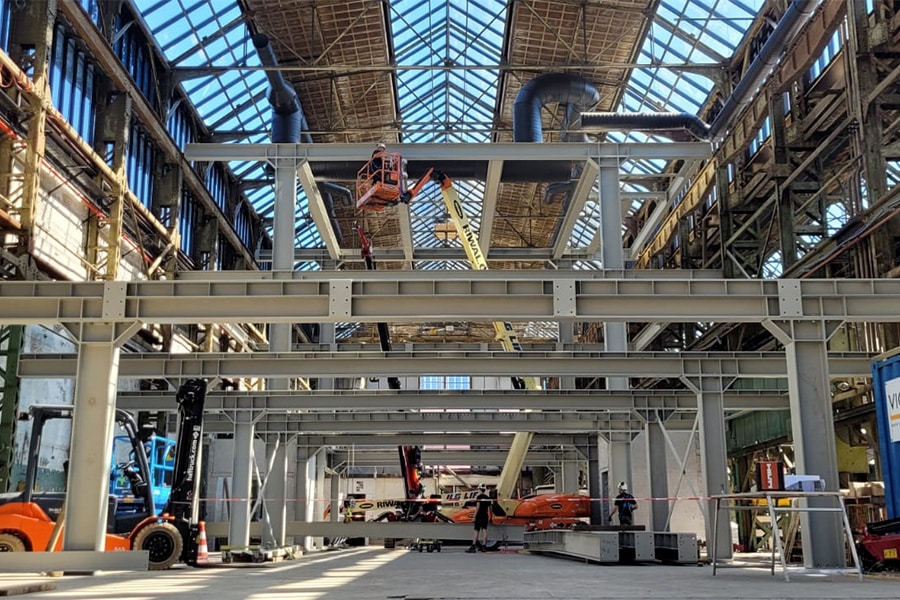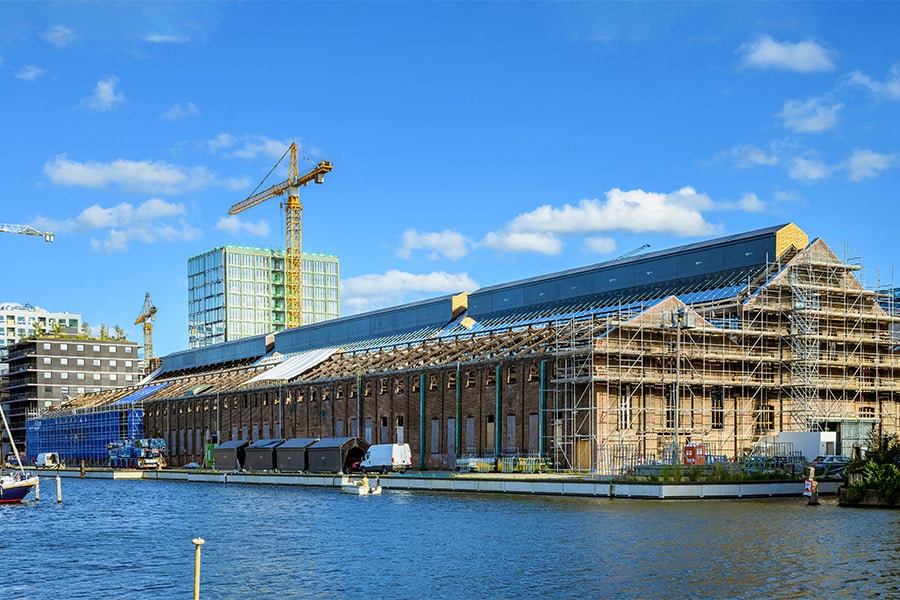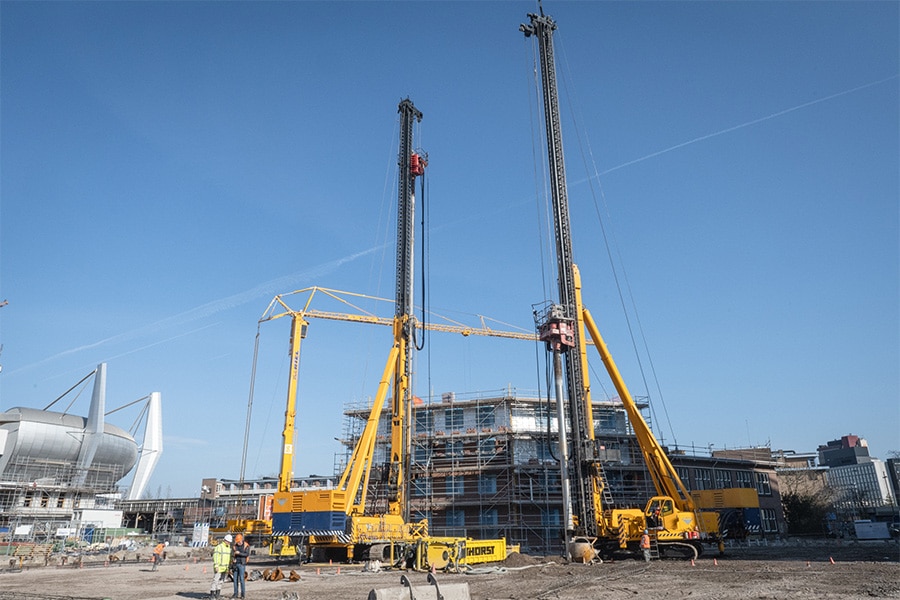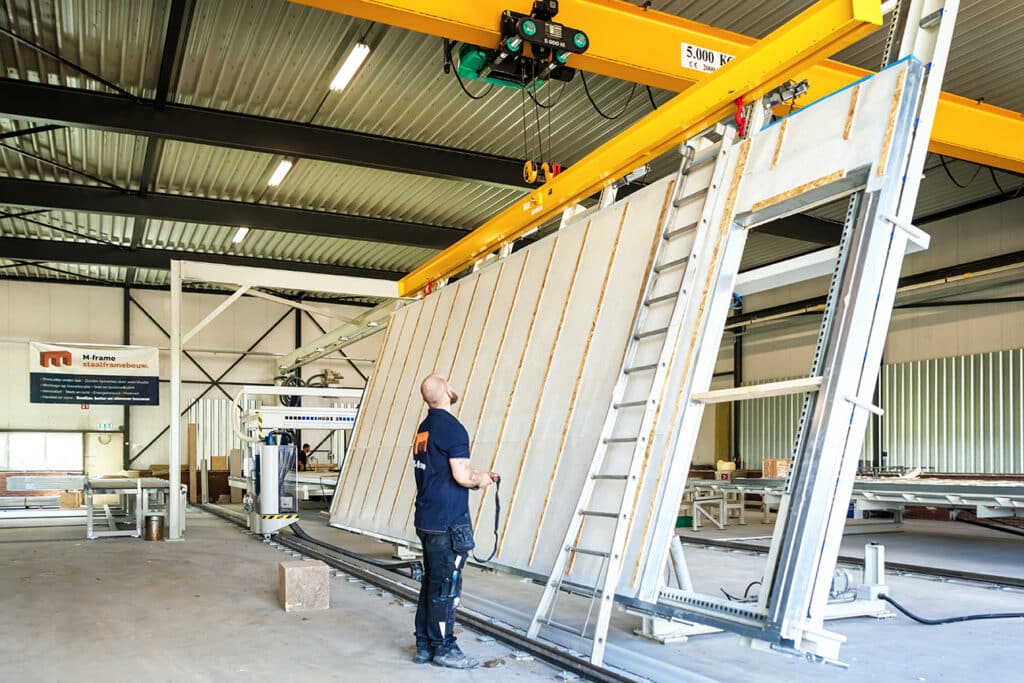
Building fast, better and smarter
'The building material of the future'
The principle of steel frame construction has been around for many years. A number of prominent projects using cold-formed profiles have also been realized in the Netherlands in the distant past. In recent years, the concept has been regaining popularity, not least because budgets are under pressure, there are fewer hands and tight deadlines are being met that demand even shorter lead times. Steel frame construction is light and flexible and therefore an interesting addition to traditional building materials to build faster, better and smarter.
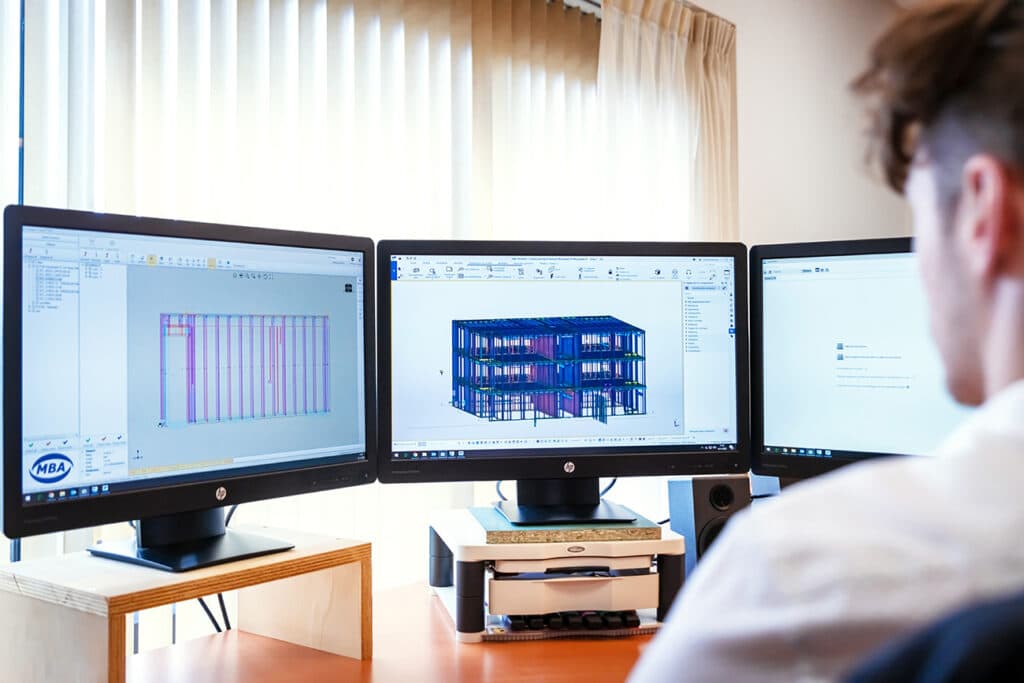
"Anything that can be made in construction with regular building materials, we make from steel frame," begins Peter van Gent of M-frame Steel Frame Construction. "Think of complete walls, roofs, floors and facades. In the Netherlands the market share is limited and that is a shame, because it is a beautiful product. The timber lobby is very big in construction. Steel frame is sometimes compared to metal stud, but that is completely unjustified. It is a structural building material with which you can easily build a three-story apartment complex. Because of its light weight, the concept also lends itself very well to topping, provided the foundation allows it. In urban areas there is little room to grow in width, so we have to take to the air. Buildings from the 1960s and 1970s can often be provided with an extra floor just fine by means of steel frame construction."
KOMO certificate
M-frame Steel Frame Construction is a manufacturing company that produces under KOMO certification. "Indeed, we have owned the certificate for fifteen years," Van Gent emphasizes. "Our then director took over the KOMO certificate from Tata Steel at the time. We are now more than fifteen years on, but still have the same mission to put steel frame as a good alternative building system on the Dutch market. We have no ambition to take over the market for HSB, CLT or concrete, but with the construction demand ahead of us, it is definitely a welcome addition to the mix. So that you can select the most efficient construction system for each issue. With steel framing, you bring in much less volume and you can make much larger spans compared to wood."
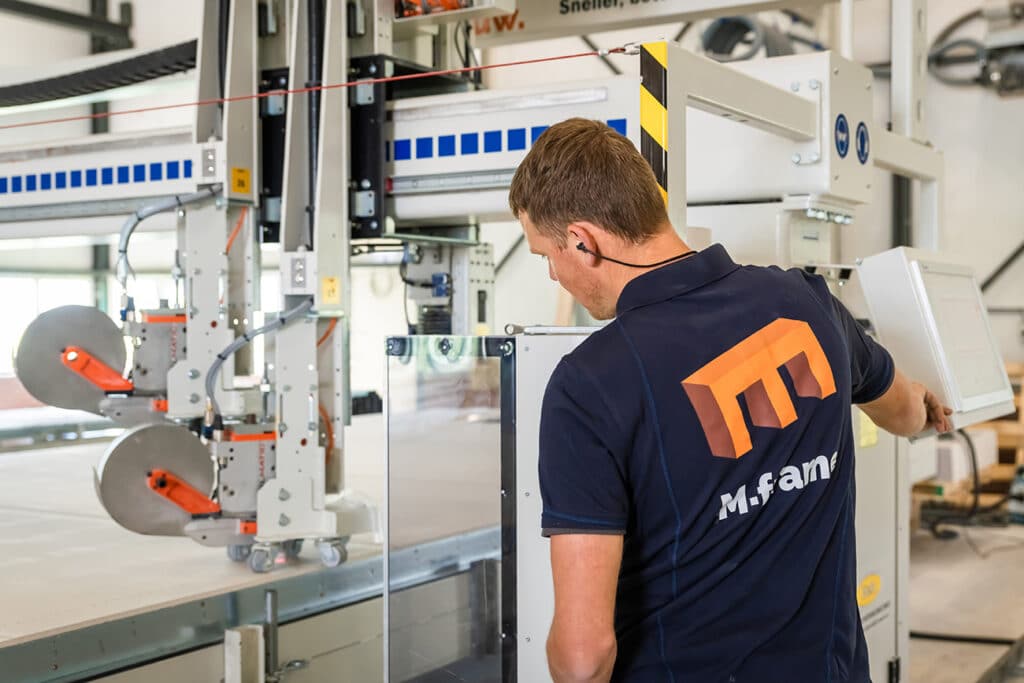
3D BIM
On the other hand, you are less flexible with steel framing on the construction site than with wood, Van Gent acknowledges. "Once produced, it doesn't really allow itself to be modified. And you don't want that either, because it's structural. That's why we build everything virtually in 3D BIM in the preliminary phase, involving all parties, from the contractor and installer to the plumber and roofer. Only when everything is correct and has been checked do we 'fake' it in real life. All elements are produced under conditioned conditions in our factory in Zwartemeer and then assembled at the building site. This means that you can build on site much more efficiently and therefore faster. And that everything also fits. After all, the concept is completely thought out at the front."
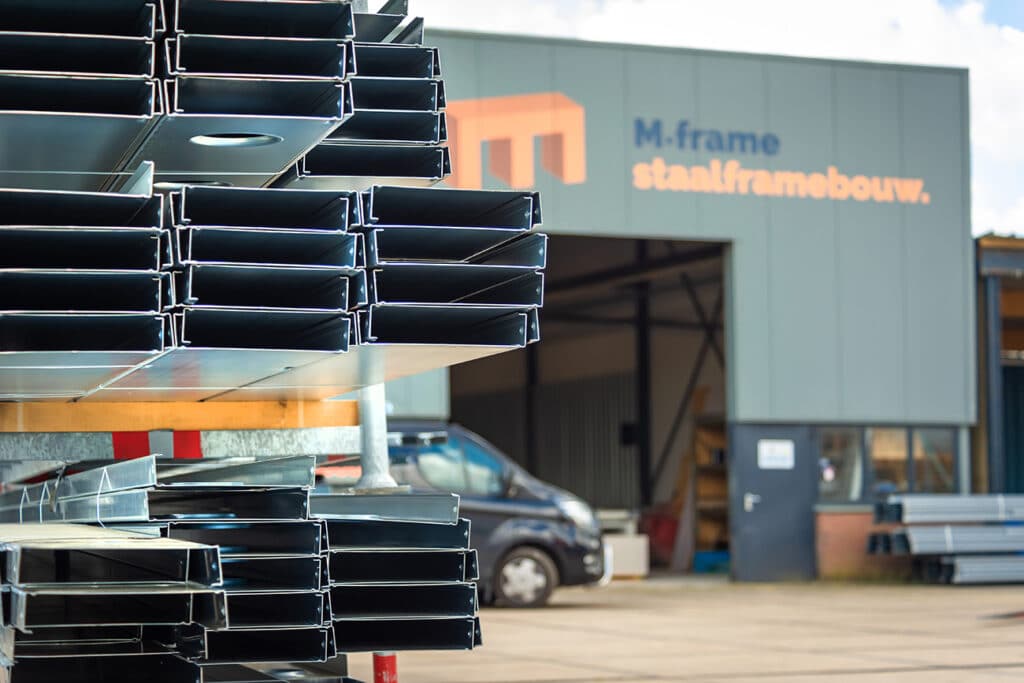
Strong and flexible
M-frame Staalframebouw is currently producing a steel frame concept for a 36-home apartment complex in Appingedam. "In addition, we do a lot of construction on behalf of one of our shareholders, Woonstaete, which relies exclusively on steel frame construction," says Van Gent. "For example, we are supplying steel-frame shells for projects in Brummen and Zutphen. We are also producing many dozens of outbuildings in steel frame construction for a well-known vacation park. The concept also lends itself perfectly to application in earthquake zones. Steel is strong and flexible. As a result, we have already realized a few homes in Loppersum. In short, steel frame construction is definitely the building material of the future. It is time for the Dutch construction industry to embrace this building method. In the countries around us and in America it has been an acclaimed technique for years."
Heeft u vragen over dit artikel, project of product?
Neem dan rechtstreeks contact op met M-frame Steel Frame Construction.
 Contact opnemen
Contact opnemen
